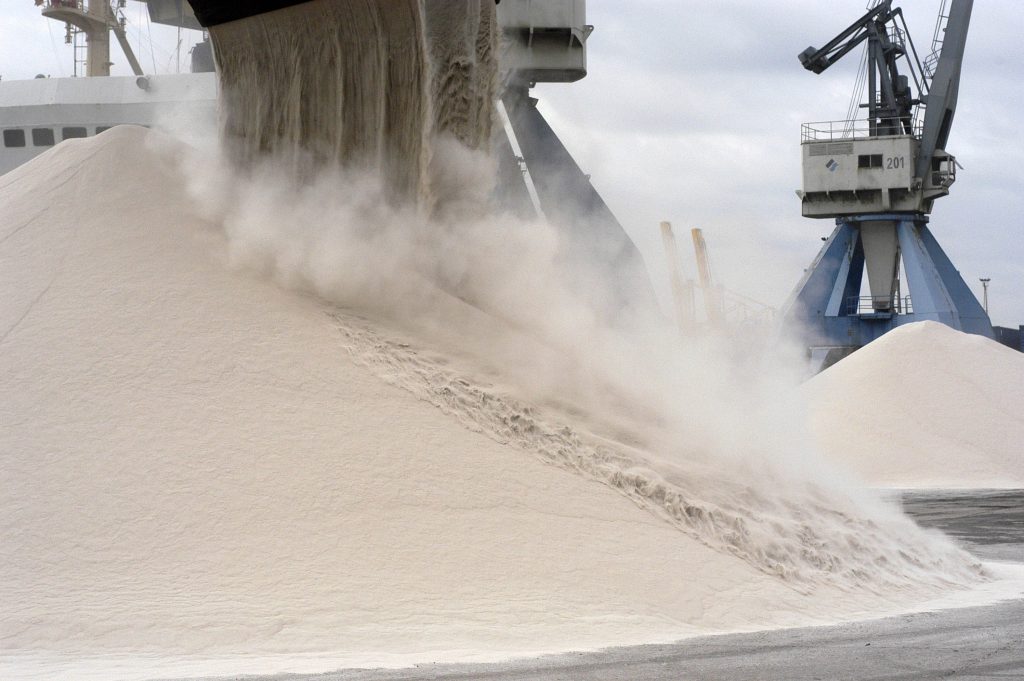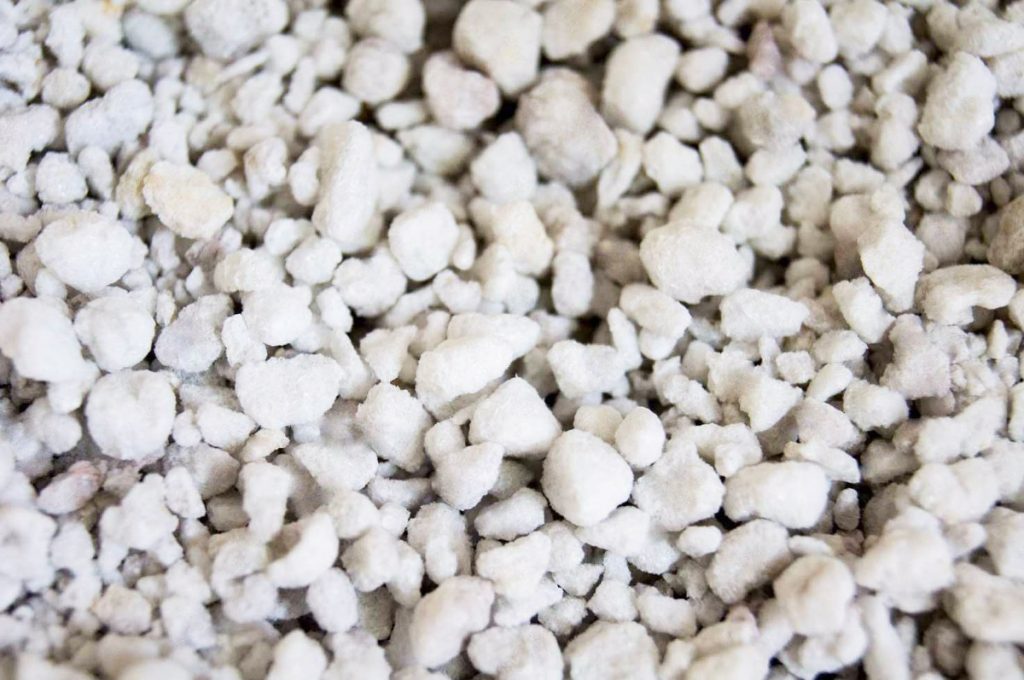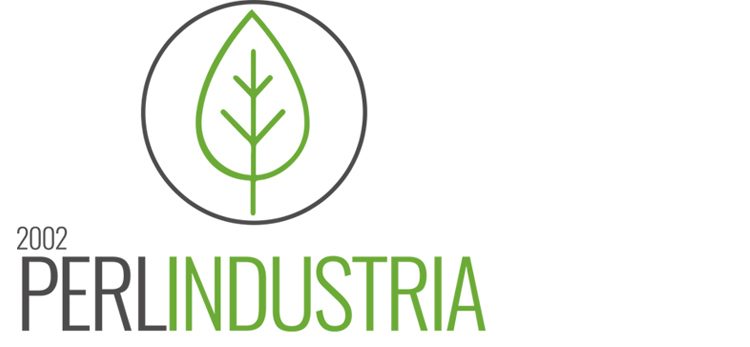PERLITE: MINERAL AND EXPANSION PROCESS

The mining of perlite ore takes place in open-pit mines located in volcanic areas in different regions of the world. The ore is milled and sifted in different sizes so that it can be transformed later.
The processed ore is calcined at 1000°C which causes the water molecules inside to evaporate, exploding and expanding up to 20 times its original volume, producing the expanded perlite.
Perlite is a volcanic mineral with a high water molecule content within its structure.

The expanded perlite is a white granular material that is extremely lightweight, the new structure gives it remarkable thermo-acoustic qualities. The countless micropores of dry air in the new structure makes the material behave as a very efficient natural insulator.
The expanded perlite retains the original qualities of the natural mineral, it is chemically neutral, inert to atmospheric agents and the passage of time, non-combustible, non-toxic, insoluble and non-hygroscopic. That makes the perlite as an efficient natural insulation for the construction industry and agriculture.
USES
Perlite’s uses depend on the field of application:
- Cryogenics: expanded perlite is an excellent insulator for low or very low temperature cryogenic systems. It is widely used in LNG (Liquefied Natural Gas) isolation tanks, noble gas tanks, oxygen, nitrogen, argon etc. in cryogenic state.
- Mortars and refractory elements: perlite is used as an ingredient in low to medium temperature refractory elements (up to 850°C) and it is used to build and/or coat ovens, furnaces, etc., and as a bonding material for joining refractory pieces.
- Isolation: passive fire protection. The manufacturing of mortars, plates and various accessories. Ceramic furnaces.
- Filtration: one of the most common uses of expanded perlite is as a filtering agent. The expanded and processed ore is chemically inert, and does not transfer taste, colour or odour to the filtrate. There is a wide range of perlite filters for various products such as beer, wine, water, oils, chemicals etc.
- Fire protection system petrochemical industry.
- Substrates-peat: perlite can be mixed with all kinds of organic substrates, providing them with a distinct capacity to be well aerated. The structure of perlite remains unchanged over time and helps to regulate water consumption by acting as a reservoir.
- Hydroponics: of all the materials used for soilless cultivation, expanded perlite is the most important. In fact, several studies have shown that outstanding crops can be achieved with perlite hydroponic systems.
- Animal nutrition: perlite acts as a binding, anti-caking and coagulant agent. Due to its high absorption capacity, perlite is used to support and carry a wide variety of nutrients, fatty acids, vitamins and antibiotics used in the preparation of additives for animal feeds.
- Gypsum: perlite is a basic ingredient in the development of new lightweight projected gypsum mortars.
- Monolayer Mortars: perlite is a basic ingredient in the manufacturing of projectable monolayer finish mortars.
PRODUCTS
2002 Perlindustria manufactures various types of perlite by expanding the mineral at our own facilities. Different types of perlite respond to different grain sizes of the mineral and how it will be applied. Its characteristics and uses are specified in detail on it respective data sheet, that you can download below:
| Perlite V5 | Perlite V6 | Perlite V10F | Perlite V12 |
| Perlite V13 | Perlite M130 | Perlite M330 | Hydroponic crop |
